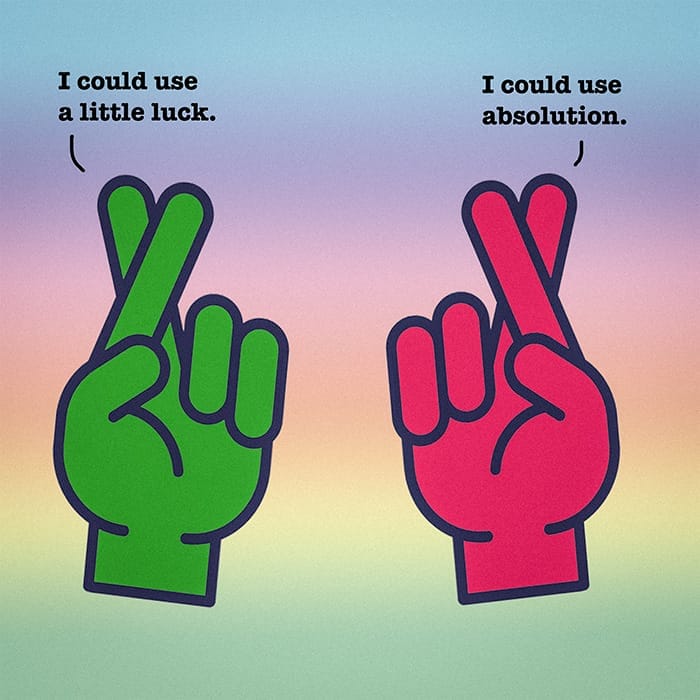Well, would you believe it? On this date, way back on August 22, 565, Saint Columba reported seeing a big old monster swimming around in Loch Ness.
Certainly, good Saint Columba wouldn’t lie. I mean, there is a lot about him, but mostly he was an Irish abbot and a missionary evangelist. He is known for spreading Christianity in what we know today as Scotland.
But, standing there on the water’s edge that day, at Loch Ness, he must have seen something alarming. Enough so to deem it a monster.
Was it the truth or a lie? Could it be that he had his fingers crossed when he told the story to the first person he saw? Or maybe he truly witnessed the now-famous beast.
Yes, the crossing of the fingers. It is a curious habit, don’t you think? It can mean one of two things.
1. We are wishing for good luck.
2. We are telling a lie and wish to be absolved of lying.
I wondered how this finger-crossing thing all began. It goes back all the way to early Christianity. The Courts of Mosaic Law — that is, laws associated with Moses and those big Ten Commandments — used to bring down verdicts upon the accused. And once they would pass their sentence on the accused, they would say, “May God have mercy upon your soul.”
The thing was, most judges felt that they could render a sentence of death upon a person. But at the same time, they also thought they were not supposed to destroy souls. Only God was allowed to do that. Because of this, some judges would cross their fingers whenever they said, “May God have mercy upon your soul.” A prayer out of concern for the criminal’s soul.
Another thing? It is believed that in the early days of Christianity, people used to cross their fingers as a signal to others of their belief in Christ. Like a secret long-distance handshake.
These practices continued for centuries.
In 16th-century England, people crossed their fingers, or they would make the sign of the cross to ward off evil. They also did this when people coughed or sneezed. Any time anyone even sniffled, it could mean the Black Death, plagues, or any of those horrific things.
Different behaviors are seen differently depending on where we are. For instance, in Vietnam, crossing one’s fingers is considered rude, especially when one person does this to another. Apparently, this is the sign referring to female genitals. It is as bad as giving someone “the finger” here in the United States.
But how about Germany? They press their thumbs together for good luck. Same for Sweden, Latvia, and many other Slavic countries. But the crossing of the fingers is a sign of lying.
Oh, it’s all so confusing.
The origin of why we cross our fingers to indicate that we are lying or to justify our lying is even muddier in terms of any real evidence. But again. This “absolution” may have roots in Christianity. People looked to those Ten Commandments and “Thou shall not fib.” And they crossed their fingers if they errored.
The question remains. Did Saint Columba have his fingers crossed that day when he stood at the waters of Loch Ness? And if so, was it for the lie he was going to tell or for luck that the monster couldn’t walk on land and gobble him up?
Either way, we probably will never know. Unless, of course, the monster surfaces and tells us so.
=============
“You never know what worse luck your bad luck has saved you from.”
― Cormac McCarthy, No Country for Old Men
=========
“Remember that sometimes not getting what you want is a wonderful stroke of luck.”
― Dalai Lama XIV
=========
“I’m a greater believer in luck, and I find the harder I work, the more I have of it.”
― Thomas Jefferson
==========
“You know, Hobbes, some days even my lucky rocket ship underpants don’t help.”
― Calvin, Bill Watterson
=========
The sign of the cross, crossed fingers.
